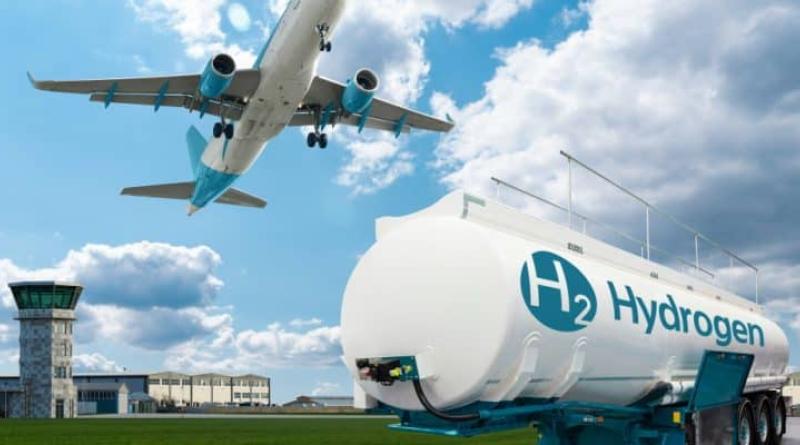At a time when the aviation industry is increasingly being questioned for its negative carbon footprint, four global energy giants are certifying a new method of producing sustainable aviation fuel. This fuel is produced from green hydrogen.
Hydrogen is increasingly emerging as a solution for decarbonization on an international scale, provided that it is produced with electricity from renewable sources… Many players are working to diversify the applications of green hydrogen. This fuel should enable the development of new sustainable aviation fuels (SAF). A new method of producing SAF has just been certified by four global energy giants.
These are the UAE’s Masdar (Abu Dhabi Future Energy Company), France’s TotalEnergies, Germany’s Siemens Energy, and Japan’s Marubeni. After two years of research, the consortium is focusing on methanol to jet (MTJ) and now identifies it as a solution for decarbonizing air transport. To obtain MTJ, methanol is used as a raw material. This flammable liquid is obtained by mixing carbon dioxide (CO2) and hydrogen (H2).
Methanol at the heart of the technology
But for MTJ to be considered a sustainable aviation fuel, the feedstock, methanol, must be produced from green hydrogen. “The initiative partners have carried out a series of assessments on technology providers, feasibility studies, and designs while working closely with regulators on compliance issues,” says Masdar.
Read also- EGYPT: with Hassan Allam, Masdar wants to convert 4 GW of electricity into hydrogen
The UAE company and its international partners are working with Abu Dhabi’s Ministry of Energy, Etihad Airways, Lufthansa Group, and the Abu Dhabi-based Khalifa University of Science and Technology on the project. However, Masdar, TotalEnergy, Siemens Energy, and Marubeni are not the first to flirt with the MTJ runway. The effectiveness of this solution has already been demonstrated in June 2022 by the American giant ExxonMobil.
The challenge of certification
“SAF produced from renewable methanol can play an important role in helping the aviation industry make the transition to a net zero future. Achieving this goal by 2050 will require a multi-faceted approach, including advances in aircraft technologies, changes in infrastructure and operations, and a significant increase in the supply of SAF,” said Russ Green, ExxonMobil’s low-emission fuels project manager, at the announcement of its patented MTJ conversion technology.
According to Masdar, MTJ can be used as an alternative fuel without changing existing storage and refueling infrastructure, aircraft, or engines. “The consortium will now work with the licensees of MTJ technology to get this new pathway certified as soon as possible,” Masdar announces. According to a study published in 2020 in the journal Atmospheric, between 2000 and 2018, aviation contributed to nearly 6% of global warming, more than digital technology, which is responsible for 3-4% of greenhouse gas (GHG) emissions.
Jean Marie Takouleu






